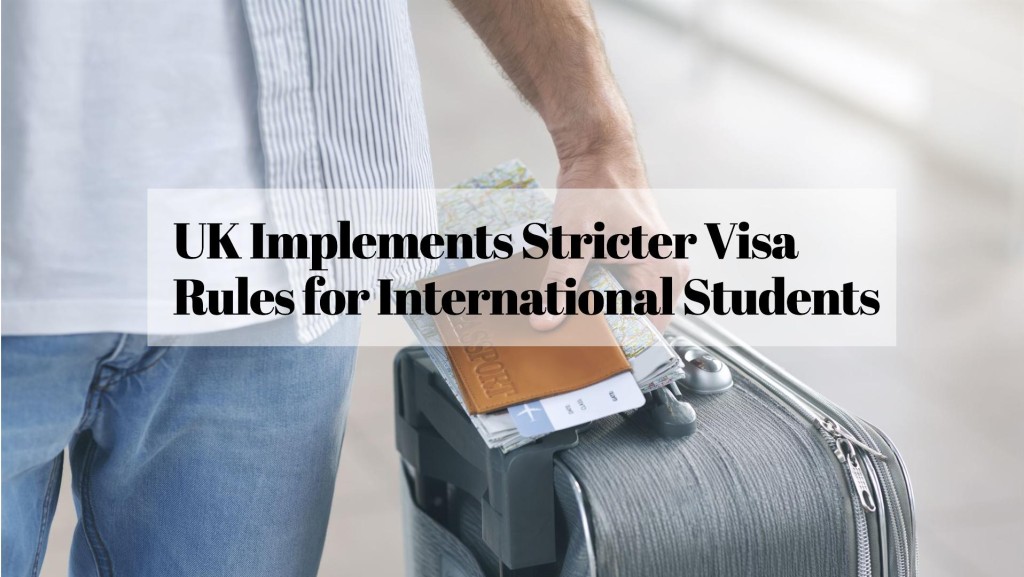The UK Home Office has announced stricter visa regulations, effective from Monday, impacting international students, including those from India, commencing courses at British universities this month. Under these changes, family members will no longer be permitted to accompany students, except for those enrolled in postgraduate research programs or courses with government-funded scholarships.
Former Home Secretary Suella Braverman initially announced these changes in May last year, aiming to curb the misuse of student visas as a means to gain employment in the UK. The Home Office estimates that approximately 140,000 fewer individuals will enter the UK as a result of these measures.
These adjustments are intended to address what Home Secretary James Cleverly described as an "unreasonable practice" of overseas students bringing dependents. Official data indicates a staggering 930% increase in such dependents since 2019.
Cleverly emphasized the government's commitment to reducing migration, asserting that these measures will contribute significantly to this goal. The changes mark a crucial step in the government's broader strategy to prevent 300,000 individuals from entering the UK.
According to the UK's Office for National Statistics (ONS), visa issuances to dependents of students surged to 152,980 in the year ending September 2023, up from 14,839 in the corresponding period of 2019.
UK Minister for Legal Migration and the Border, Tom Pursglove, acknowledged the UK's prestigious universities' appeal to top talent globally. However, he also noted a concerning rise in the number of dependents accompanying students, contributing to unsustainable migration levels.
"We are fully committed to achieving a significant reduction in migration. The measures introduced today, which restrict bringing dependents on the student visa pathway, enable us to safeguard our public services while facilitating the entry of students who make substantial contributions. These actions, along with others, aim to reduce migration to the UK by 300,000 compared to the previous year," stated the official.
The Home Office emphasized that the alterations to student visas strike a delicate balance, maintaining the appeal of the UK's esteemed higher education sector while preventing institutions from prioritizing immigration over education.
The government intends to collaborate with universities to devise an alternative approach for exceptional students to bring dependents to UK universities, all while continuing efforts to decrease net migration.
Under the leadership of Prime Minister Rishi Sunak, the UK government is dedicated to reducing both legal and illegal migration into the country.
Recently, Cleverly unveiled additional measures, including tightening health and care visas by barring overseas care workers from bringing dependents and mandating that care firms in England be regulated by the Care Quality Commission to sponsor visas.
Furthermore, salary thresholds across the Skilled Worker route will see a nearly 50 percent increase to GBP 38,700, a requirement that will also apply to British or permanent UK residents sponsoring family members by early next year.
Simultaneously, the independent Migration Advisory Committee (MAC) will be tasked with reviewing the Graduate route or post-study work visa.
In the student visa category, Indian nationals constitute the largest group of students granted leave to remain on this pathway, comprising 43 percent of grants.
Various diaspora student groups have expressed widespread concerns regarding the proposed review of the route, which allows for post-study work experience and is a significant factor in Indian students opting for UK universities.
"This package of measures, coupled with the adjustments to student dependents, means that approximately 300,000 individuals who arrived in the UK last year will not be able to do so in the future – marking the largest reduction ever. This is a stringent yet equitable approach to bringing down net migration to sustainable levels as soon as possible, while ensuring that those affected have adequate time to prepare for forthcoming changes, with the package being gradually introduced throughout early 2024," stated the Home Office.














